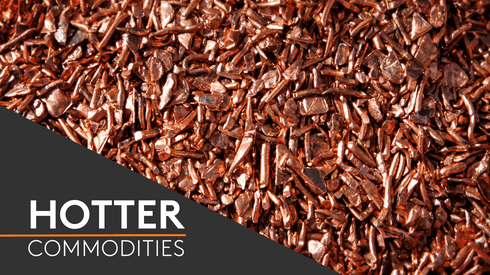Metal Bulletin editor Alex Harrison looks back on the key moves in metal markets over the past week.
Read an in-depth and exclusive interview with Mr Copper, Mike Farmer. The Red Kite co-founder told Metal Bulletin’s Andrea Hotter: “I think you’re starting to look at much higher copper prices.” He talked about the future, and past, of the London Metal Exchange and markets in Asia. Required reading.
Short-term though, copper prices on the LME were sold. Outrights on the London Metal Exchange fell to seven-month lows, and spreads eased, when assessments of risk in China were reappraised after the country’s first ever corporate bond default.
Copper was already under pressure after the yuan’s depreciation against the dollar raised earlier suggestions that financing deals in the country, and as a result copper prices, could come under pressure.
Aluminium premiums in Singapore rose, though, on expectations of a higher second-quarter settlement in Japan and the cancellation of warrants to LME-registered material in the city-state.
Aluminium producers in China face two challenges, the head of corporate finance at a 2.5 million tpy smelter told Metal Bulletin in an interview: energy costs and raw material supply, post Indonesia’s export ban. Previously energy costs were the central challenge. Competition for raw materials is likely to intensify, she said.
Alumina prices indexed by Metal Bulletin continued to move down though on smelter cutbacks.
Which chrome prices have fallen furthest since Metal Bulletin began to publish its charge chrome index two years ago? Find out here.
The question was sparked for Metal Bulletin reporters as they looked into the stand-off between ferro-chrome smelters in China, and their ore-supplier counterparts in Turkey and South Africa.
The extraordinary events in Ukraine galvanized markets early in the week. For the moment, though, ferro-alloy shipments have not been affected.
One of the owners of Privat Group, which operates three large ferro-alloy smelters in the riven country, meanwhile accepted an offer from the new government in Kiev to take over as governor of the Dnipropetrovsk region.
Glencore Xstrata ceo Ivan Glasenberg highlighted what he described as the company’s “resilient” marketing business as he reported that pro-forma underlying earnings for 2013 (when it took a $7.6 billion writedown on its purchase of Xstrata) were flat on 2012 at $13.1 billion.
Finally, for those interested in price formation, Metal Bulletin is holding a web seminar on Thursday March 13 at 15:00 UK time to discuss the methodologies, specifications and usages of Metal Bulletin’s prices.
Over 100 companies, including large trading firms, producers and consumers, have already signed up. Sign up here if you want to join them.
Alex Harrison
aharrison@metalbulletin.com
Twitter: @alexharrison_mb




